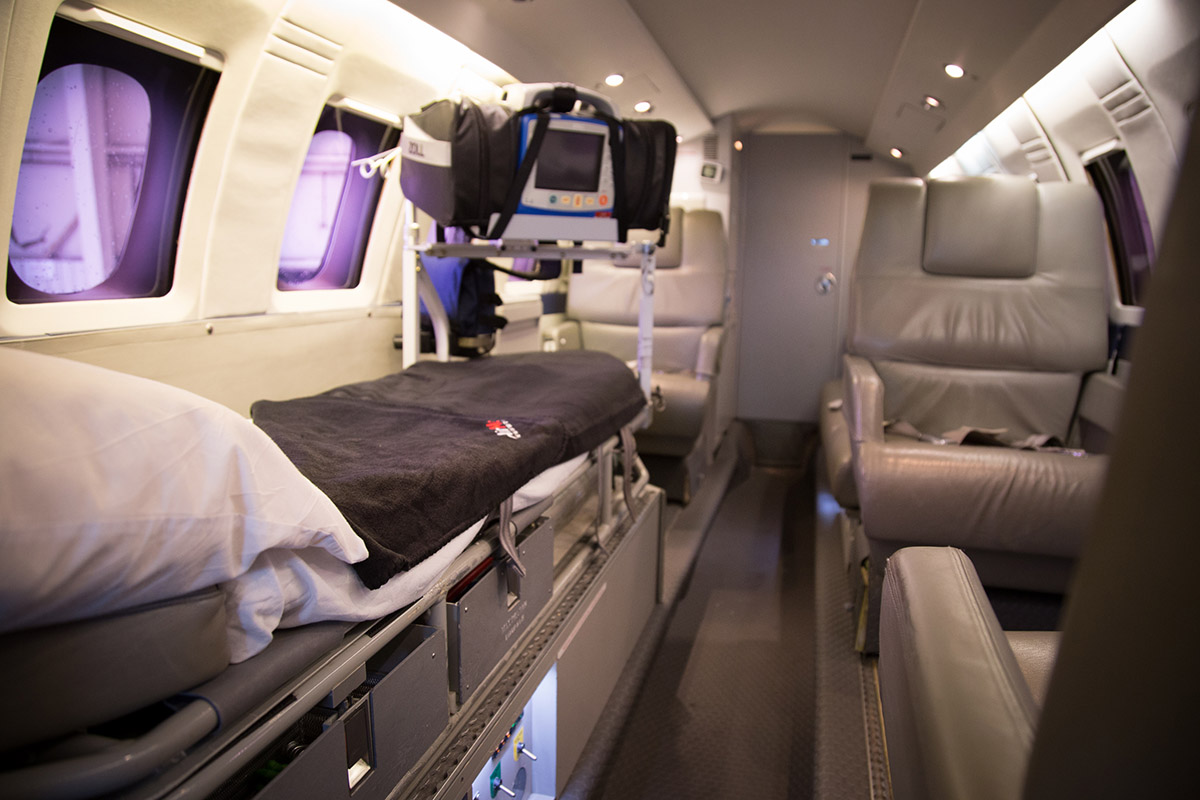Pediatric Patient Transport

Caring for pediatric patients is different from adult patients due to anatomical and physiological differences. Moreover, the development characteristics of pediatric patients also alters their evaluation and care needs.
Anatomical differences such as the impact of higher body surface to body volume ratio on temperature regulation capabilities. This requires higher metabolic care with minimal glycogen stores. Having less reserves, exposes them to decompensation if not monitored carefully. Caring for pediatric patients therefore requires knowledge of pediatric anatomy needs to ensure flight is conducive for pediatric transport.
The skills of the crew should be regularly reviewed and updated, and there is a need to gain as much experience as possible dealing with pediatric patients.
For critically ill pediatric patients speed of transport is important. An optimal transport system would require the advantages of a coordinated system of ground and air facilities.
There has to be effective communication between the transportation team, ancillary support, referring hospital and the receiving hospital.
The transport vehicles should have adequate space, safety and power sources and climate control capabilities. It should be a proper mobile intensive care equipment to ensure proper pediatric transport.
The team should be prepared to deal with nonclinical situations such as a family member’s request to stay with the patient or vehicles failure.
With the availability of different types of medical personnel, their duties will depend on their prior experience with pediatric patients. After diagnosis and establishing the clinical condition of the pediatric patient, the composition of pediatric transport team should be determined. The selection is made from a pool of members trained in pediatric transport. It usually consists of: emergency medical technicians, physicians, nurses and respiratory therapists. For critical cases, there could be a need for pediatric intensivists.
At Airmed, our team members have years of experience, training and; are certified and skilled to handle critical care needs of pediatric patients. Not only that but that they have the required expertise to transport medicine, handle equipment required, manage supplies, limitations of the equipment and they understand the physiological effects of transport on a patient. Caring for pediatric patients requires dealing with emotional situations too, and our teams are fully capable of that.
We have a fleet of medically transfigured airplanes, along with a network of ground transportation services. Our teams can effectively coordinate with other facilities and make clinical arrangements for the patient. Our 24/7 support team takes every case seriously and the arrangements thereof are given utmost priority. The loved ones of the patient are updated about the condition of the patient at regular intervals. To find out more about pediatric transport facilities, please contact us today!
Certifications
Our medical teams also hold board certifications in CFRN (Certified Flight Registered Nurse) or CCRN (Critical Care Registered Nurse) We are proud to have this as one of AirMed’s standards to provide the highest clinical care.